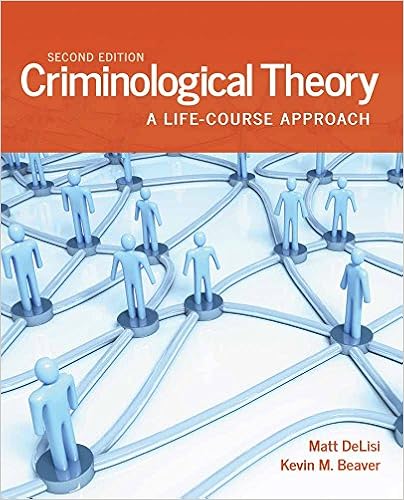
Life Course Theory Criminology. However both can be linked in a side-by-side fashion utilizing John Bowlbys theory of attachment. In the criminology field the life-course theory is used as a backbone or a starting branch for an assortment of other theories that are less broad and more specific. This occurs when the individual experiences a transition during their life course. Criminology Life Course Theory Criminology.

One of the most well established assertions in criminology is that of the relationship between crime and age eg. The history of the theory partially stems from the 1920s theorist Karl Mannheim who wrote the groundbreaking dissertation The Sociological Problem of Generations. Therefore the life-course perspective within criminology focuses on the examination of criminal behavior within these contexts. This occurs when the individual experiences a transition during their life course. We reflect on the role that the Criminal Careers report played in our own work from the time of the reports release to the development and assessment of what is now known as the age-graded theory of informal social control and the broader field of life-course criminology. One of the theories that one can study through Criminology is the Life Course Theory which is a perspective that focuses on the development of antisocial behavior risk factors at different ages and the effect of life events on individual development Fuller.
Although these two theoretical approaches share some common features they also differ in the concepts that they deem to be of focal concern.
The first is that the theory takes a life course perspective. There are three fundamental aspects of interactional theory. One of the theories that one can study through Criminology is the Life Course Theory which is a perspective that focuses on the development of antisocial behavior risk factors at different ages and the effect of life events on individual development. The history of the theory partially stems from the 1920s theorist Karl Mannheim who wrote the groundbreaking dissertation The Sociological Problem of Generations. Given its sociological origins life-course theoretical explanations tend to focus more on social processes and structures and their impact on crime. This chapter reviews seven of the most well-known and longest-standing developmental and life-course theories of crime and deviance.